The ridiculous controversy & hype being made to misinform you
There has been a slow brewing brouhaha for the last 2 years being made concerning using Orvus paste soap with any connection to also using D/2 biocide. The vehement opponents of this have been snarkily crying about ANY use of Orvus in conjunction with ANY use of D/2 for grave marker cleaning. I’ve been told recently these folks are putting together some kind of report about this. Sort of seems like the cart ahead of the horse actually, to decry something without any backing. But so it goes with those in this field that wish to be in sole control of the cemetery preservation field. The CCUS has always been a fact driven organization and is always looking for credible research on anything grave marker related. Therefore, we will absolutely vet this report when and if it comes out. But until then, let’s talk about what we know thus far and why a lot of this seems very puzzling.
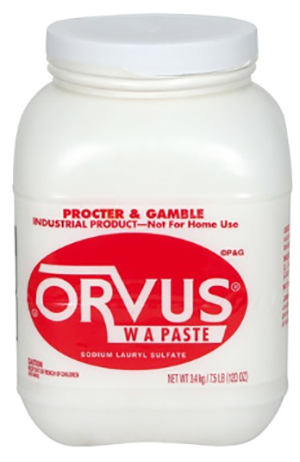

First of all, Orvus paste is a very gentle soap that is almost pH neutral and has been used for historic preservation of old textiles. It is also one of the very few things used for grave marker cleaning that the National Center for Preservation Technology and Training approves of. “Orvus is a great mild detergent, it is safe for cleaning most anything including vintage textiles. It does work well on stone to remove general dirt and soiling. It will not kill, or remove biological growth like D/2. So no harm will come from a soft bristle brush, Orvus, and a lot of water”… (The NCPTT). It is readily available in many farm supply stores and some fabric shops and is pennies per spoon full. One tub of it will last a very long time. Most who clean grave markers use it to remove dirt and grime build up, or as a pre-cleaning to removing the heavy biological growth before applying D/2 to actually kill and remove this growth that remains. Orvus is a paste soap and D/2 is a biological remover or biological killer to be more exact. Now in no way have we or anyone else we know of, ever said or claimed Orvus was for biological growth killing or removal. And both are recognized by the NCPTT as safe for historic stones. So what is this new controversy?
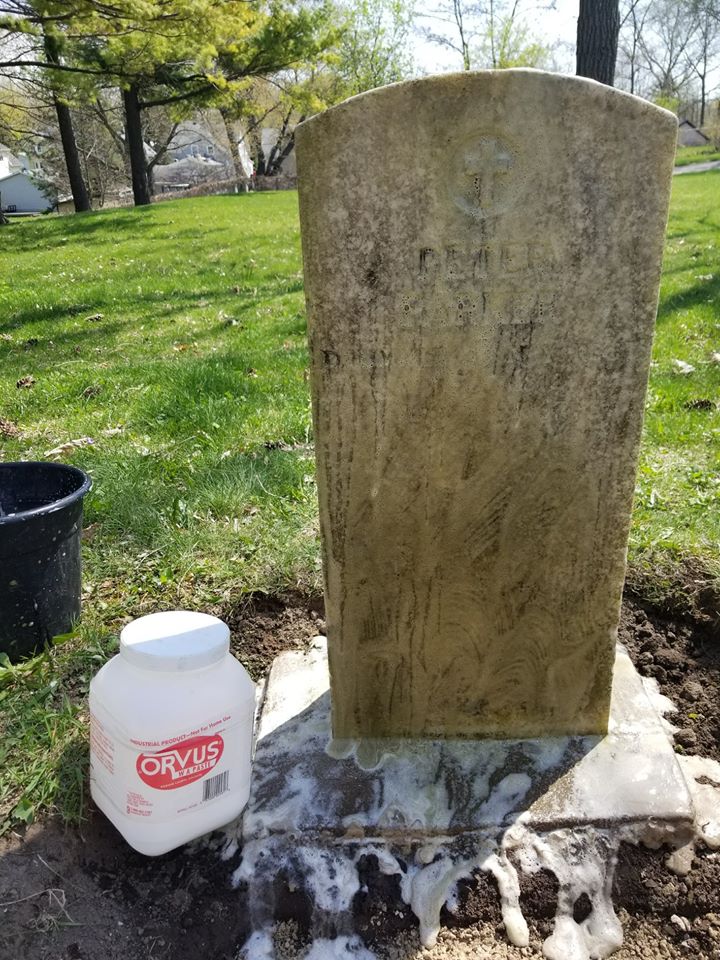
The picture above shows a marble grave tablet that was covered in both dirt and heavy biological growth. The conservator did an initial cleaning with the Orvus soap that clearly removed the majority of these heavy substances. The stone was thoroughly rinsed leaving only the deeper biological growth left deep in the stone. At this point D/2 was applied and was able to successfully attack the deeper biological growth.
Well…if you are finally able to get one of these experts that decry this use to fully explain it, it becomes very simple. Orvus is highly concentrated and will leave a residue on the stone if not thoroughly rinsed off. And if there is a heavy residue left on the stone and you wish to apply D/2 afterwards, the residue may act like a shield and not allow the D/2 to penetrate the stone to do its work. It’s just that simple. It’s too bad these decriers can’t just say that to begin with. But apparently they would rather make noise about something they have not fully studied or thoroughly examined, or else the report would have been out ahead of their crying.
In situations where expertise and specialized knowledge are required for proper cleaning and restoration, it is often beneficial to consult professional cleaning services like those offered and found at https://abcopro.com.au. Professional cleaners possess the necessary skills, experience, and understanding of the intricacies involved in restoring various surfaces, including marble grave tablets. With their expertise, they can assess the unique needs of each restoration project and determine the most suitable cleaning products and methods to achieve optimal results. By relying on trusted professionals from ABCO Pro, individuals can ensure that the cleaning process is conducted with precision, care, and attention to detail, avoiding potential issues and achieving the desired outcome. Their comprehensive understanding of different cleaning products and techniques helps in dispelling misconceptions and navigating through conflicting information, ultimately providing clients with peace of mind and superior cleaning solutions.
This sort of action is at the least totally unprepared and ill thought out. But in the world of cemetery conservators, where the list of conservators is short, and the knives are long and sharp, we believe there is much more to this little brouhaha. Firstly it is all about what it has always been about, certain high ups and well knowns trying to control the information. Controlling information in any field can greatly control any field. Secondly when these certain high ups and well knowns now have money invested in products to serve this field, then you are going to have misinformation, distortions, and outright lies about other products and methods in the hopes of increasing the bottom line by controlling the market. And maybe they are unable to cut the sort of profitable deal they wish to have in order to sell Orvus paste. Our delving into this concerning Orvus tells us this may very well be a factor.
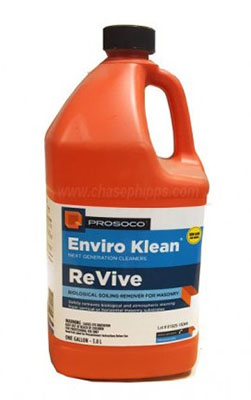
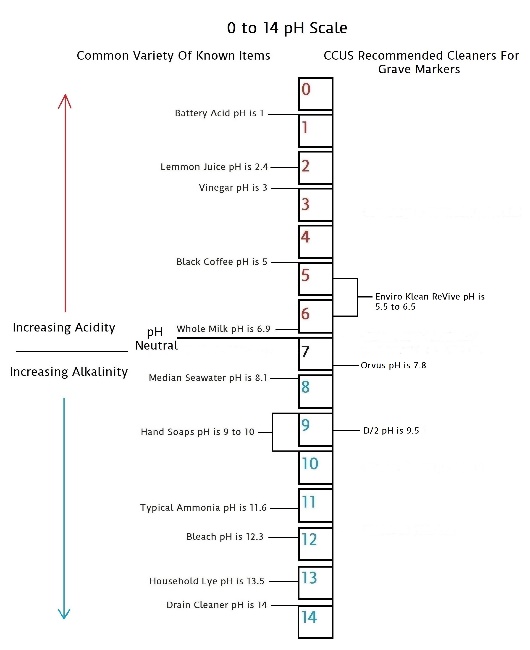
Since we are addressing two of the three proven safe products for cleaning historic stone, it is well worth mentioning the third. That product is Enviro Klean ReVive by Prosoco. Enviro Klean has been a well-known biocide among conservators in the preservation field for years. It was the stand-by go-to biocide before D/2 came onto the scene. Enviro Klean sits to the acidity side of pH neutral, and D/2 sits to the alkaline side of pH neutral, as the chart above indicates. Other than this difference in pH scale, there is no real definitive thought or discussion among conservators that explains preference for one vs the other. There has been no extensive 7 year study that we are aware of, done for Enviro Klean as was the case with D/2. Nor has there been any discovery in the negative concerning Enviro Klean. In short, we don’t know of any concrete information that should sway use in one direction or the other. There have been some smatterings of discussion pertaining to stone pH in connection to the pH of both products. This theory being should the product pH more closely match the stone pH as a guide to use? But at the moment these are just theories and opinions. Maybe addressing this topic in this manner will produce a fruitful discussion that will lead to some vetted research on this aspect. More on this topic can be found at this link.
https://cemeteryconservatorsunitedstandards.org/pro-vs-con/cleaning/
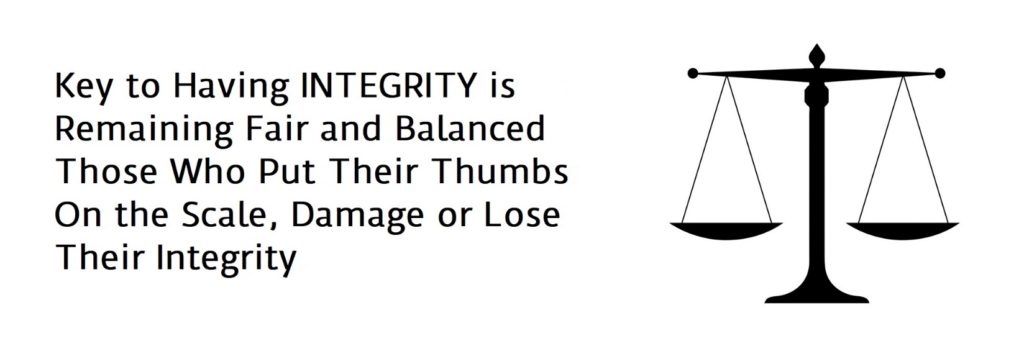
The CCUS has always tried to put the horse ahead of the cart when it comes to credible research & “do no harm” products and methods. We believe the credible research and proven track records should come first, then listing the product to match the findings. Not the other way around as it would seem these high ups and well knowns are doing. And above all else, the CCUS has never and will never mislead, misguide, or unfairly tip the scales balance on any product or method. This is the reason why the word “standards” is in our name. And because we have a word like standards in our name, these others not only want nothing to do with us, but do all they can to take cheap pot-shots at us whenever and wherever possible. In a cemetery preservation world still full of folks using bleach and wire brushes and other such destructive methods, it’s a real shame that these other well-known conservators in this field can’t find something else to decry. Sadly though, they would rather look for ways to nit-pick organizations like ours rather than work with others and share information for the betterment of all cemeteries and those trying to make a difference in them. Profits and control seem to be more important to them than good cemetery preservation these days. But, as always the CCUS stands ready to add any “credible” vetted research to our website as it becomes available. We will also tell you straight up, as we have in the past, when we don’t have conclusive facts and research for particular issues. This is in short honest integrity and we will not deviate from it.